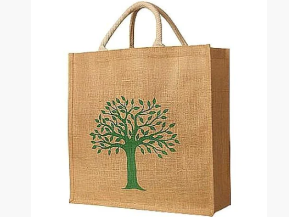Making the Switch: The Environmental Benefits of Using Jute Bags Instead of Plastic Bags
As the world becomes more environmentally conscious, more people are looking for ways to reduce their impact on the planet. One simple way to do this is by making the switch from plastic bags to jute bags. Jute bags are a sustainable alternative to plastic bags that are not only environmentally friendly but also stylish and versatile. In this blog, I will discuss the environmental benefits of using jute bags, how they are produced sustainably, and how they can be designed and customized to suit your needs.
Introduction to Jute Bags
Jute bags are made from the fibers of the jute plant, which is native to the Indian subcontinent. The plant is grown mainly in Bangladesh, India, and China, and the fibers are extracted from the stem of the plant. Jute bags are known for their durability, strength, and versatility, making them a popular choice for shopping bags, tote bags, and other types of bags.
Jute bags come in a variety of sizes, shapes, and designs, and can be customized to suit your needs. They are also very affordable and can be reused many times, making them a cost-effective and environmentally friendly option.
Environmental Impact of Plastic Bags
Plastic bags are one of the most harmful products to the environment. They take hundreds of years to decompose, and when they do, they release harmful chemicals into the soil and water. They also pose a significant threat to wildlife, who often mistake them for food or become entangled in them.
In addition to their environmental impact, plastic bags are also a waste of resources. They are made from non-renewable resources like oil and gas, and most of them are used only once before being discarded.
Advantages of Using Jute Bags
Jute bags have several advantages over plastic bags. Firstly, they are reusable, which means that they can be used multiple times before being discarded. This reduces the overall amount of waste generated and helps to conserve resources.
Secondly, jute bags are biodegradable, which means that they will decompose naturally and will not release harmful chemicals into the soil and water. This makes them a more environmentally friendly option than plastic bags.
Thirdly, jute bags are strong and durable, which means that they can carry heavy loads without tearing or breaking. This makes them a practical option for shopping and carrying other items.
Jute Bag Production and Sustainability
Jute bag production is a sustainable process that involves minimal use of resources. Jute plants require little water, fertilizer, or pesticides to grow, making them an eco-friendly crop. The fibers are extracted from the stem of the plant by a process called retting, which involves soaking the stems in water to loosen the fibers. The fibers are then dried and woven into fabric, which is used to make jute bags.
Jute bag production also provides employment opportunities for people in rural areas, where the jute plant is grown. This helps to support local communities and provides a sustainable source of income.
Jute Bag Design and Customization
Jute bags can be designed and customized to suit your needs. They come in a variety of shapes and sizes, and can be printed with your logo or design. This makes them an excellent option for promotional items or as a way to showcase your brand.
Jute bags can also be dyed in a range of colors, which makes them a versatile option for fashion accessories. Many designers are now using jute bags in their collections, as they are not only eco-friendly but also stylish and practical.
Where to Buy Jute Bags
Jute bags can be purchased from a variety of retailers, including online stores, eco-friendly retailers, and speciality stores. When purchasing jute bags, it’s important to look for products that are made from sustainable materials and produced in an environmentally friendly way.
How to Care for Jute Bags
Jute bags are easy to care for and can be washed in cold water using a mild detergent. They should be air-dried and should not be ironed. If your jute bag gets stained, you can spot-clean it using a mixture of water and vinegar.
Alternatives to Jute Bags
If you’re looking for an alternative to jute bags, there are several eco-friendly options available. Canvas bags, for example, are a durable and sustainable option that can be customized to suit your needs. Other options include hemp bags, bamboo bags, and recycled plastic bags.
Jute Bags in the Fashion Industry
Jute bags are becoming increasingly popular in the fashion industry, as designers are looking for sustainable and eco-friendly materials to use in their collections. Jute bags are not only environmentally friendly but also stylish and practical, making them a great option for fashion accessories.
Many designers are now using jute bags in their collections, and some are even creating entire lines of eco-friendly fashion using sustainable materials like jute.
Conclusion
Jute bags are a sustainable alternative to plastic bags that offer several benefits over traditional plastic bags. They are durable, versatile, and customizable, making them a practical option for shopping, carrying items, and as fashion accessories. Jute bag production is sustainable and provides employment opportunities for people in rural areas, making it an eco-friendly choice.
If you’re looking for an environmentally friendly option for your shopping or fashion needs, consider making the switch to jute bags. By choosing jute bags over plastic bags, you’ll be making a positive impact on the environment and supporting sustainable production practices.

